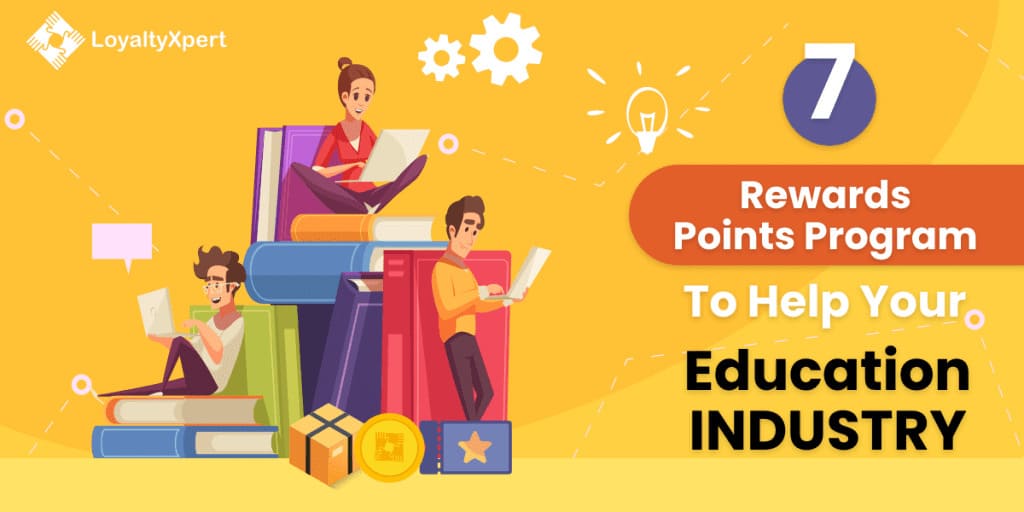CONTENT
Initially, the ramping-up of the reward scheme introduced in educational systems seemed somewhat unimportant. While you may be fascinated to ask if students will begin to take medals just for showing up, these schemes change the entire educational system. These changes could involve everyone from pre-school to universities, from students to teachers, including parents.
What is a customer loyalty program?
The customer loyalty program is one of the most compelling ways to form a good customer base. It could involve a drastic change from a common platform to meaningful customer engagement. Many companies have launched a customer loyalty program through customer feedback apps or online channels.
These programs offer value addition to loyal customers while forming a one-on-one interpersonal connection. However, this might not even prove suitable for every business, as every business is not comfortable with loyalty programs.
Therefore, how to decide the best loyalty program for education industry is an important task. There are several parameters to be considered while arriving at a particular decision.
Let us look at the best 7 Reward points program to help your education industry.
1. Point-based program
These are one of the most engaging loyalty programs across the world. However, the reason is its low operational cost and simplistic approach.
Offering redeemable points on a transaction increase the possibility of repeated transactions over a period of time. These points can also be transferred into cash or coupons. It ensures your future purchase. Several pros of such loyalty programs are:
- Less risk as compared to other loyalty programs
- Free membership facilities
- Ramped-up free sign-ups then free-based loyalty programs.
2. Rewarding all Stakeholders
A reward scheme needs a broad scope, which constitutes teachers as well as parents, to develop a village mentality. Additionally, a more robust educational ecosystem is also to be formed.
Educational reward schemes are provided to students completing their assignments, projects, etc. to complete their tasks individually or in groups.
These rewards do not include any cash incentive. However, measures should be taken to provide suitable rewards for each party i.e., students, parents, and teachers, equivalents to desires, interests, and roles.
These rewards can be prepaid college tuitions, movie tickets, sporting goods, pre-loaded financial products, gift cards from merchant partners, etc.
3. Behaviour Boosting
Some issues relating to external motivators arise a lot that reward schemes will be effective or not, but work against developing a child’s motivation. In simple words, participation in school just for rewards rather than for learning. Somehow, we all perceive that promoting the positive side of everything is essential for students in the class.
However, not all students have the same motivational drives. Some are motivated by challenges at work, some by praise, some for the love of learning, and some by the pleasure of accomplishing something. If this is not enough, rewarding students without rewarding parents and teachers can also fail.
4. Satisfaction Guaranteed
Out of many schemes, a pilot reward scheme has been introduced at the school level, across the country. However, if the whole educational period is to be covered, there is a need to understand how these schemes can operate nationwide. Also, the most effective schemes are those that incorporate both local merchants and financial institutions.
5. Jump-start Motivation
The biggest challenge faced by the instructors is motivating students to learn. However, in the case of a reward-based program, students tend to show a higher interest than their normal way of learning. Increased participation in classroom activities is visible by the student.
In the well-organized scheme, the student receives tangible attractive rewards at frequent intervals. These reward programs encourage accountability and long term efforts of a student.
6. Simple-free based program
One of the most direct ways of interacting with the parents is Simple-free based program. In such a program, the participant needs to pay a certain amount to enroll in the program membership. It makes them eligible for sales discounts, early-sale purchases, exclusive offers, etc. It is also called Premium membership benefits or VIP.
Pros:
- One of the most straightforward loyalty program (easily understood by the parents and educational institutions).
- Fund generated can be used to cover up the costs of the program.
- Parents are easily attracted after noticing other benefits related to the program.
7. Value-based program
One of the most important aspects of running an educational institute is building a deeper relationship with the students. Value-based programs are conducted to create a direct relationship with the students that attract them towards your educational institute.
Value-based programs are another way of showing respect to your loyal parents and students. With the help of the programs, you can reward the parents by not rewarding them.
Wrapping up
Loyalty programs at the educational or business level help the students to stay motivated throughout the journey. With lots of distractions taking place, rewards play an important role in finding the individual’s ultimate goal.
Educational institutes interested in the customer loyalty program can get in touch with us.
See how a smart loyalty program can boost your sales.
Get a free demo and discover how to drive loyalty with ease.
FAQs
Ajay Pareek
President of Sales - LoyaltyXpert
Ajay Pareek is a seasoned Sales leader with over 30 years of experience in building and scaling B2B digital platforms. His expertise lies in crafting innovative solutions for channel engagement, loyalty programs, and comprehensive sales management. Ajay has been instrumental in driving substantial growth and profitability for the company through his strategic leadership.




